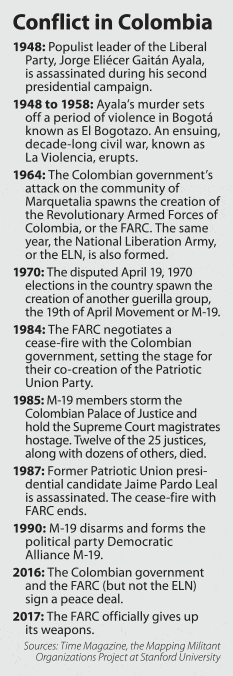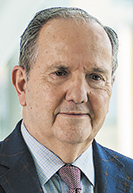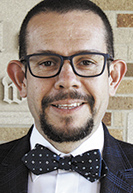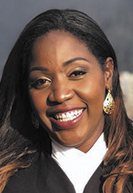Subscriber Benefit
As a subscriber you can listen to articles at work, in the car, or while you work out. Subscribe NowCivil conflict in Colombia has been raging for so long that generations have lived and died without much hope of resolution. It has simply remained a daily fact of life for decades.
In the last few years, though, a tiny ray of sunlight has shone in the South American country as leaders on both sides have agreed to lay down their arms.
 Whether this peace accord stands the test of time remains to be seen. What is clear is the dedication of a small group of current and former Notre Dame Law School students and professors working to seek justice and win the peace.
Whether this peace accord stands the test of time remains to be seen. What is clear is the dedication of a small group of current and former Notre Dame Law School students and professors working to seek justice and win the peace.
History of the conflict
The roots of the country’s civil conflict stretch back more than 50 years.
Leftist groups including the Revolutionary Armed Forces of Colombia (or the FARC), the National Liberation Army (or the ELN) and the 19th of April Movement (or M-19) sprung up in the mid-1960s and early 1970s.
The Colombian government — along with right-wing paramilitary forces — fought a sustained, low-intensity battle against these groups, mostly in the rural areas of the country.
M-19 officially disarmed and formed the political party Democratic Alliance M-19 in 1990, while the FARC and the ELN carried on their armed struggle for another quarter-century.
Finally, in 2016, the FARC and the Colombian government — led by President Juan Manuel Santos — signed a peace accord. Though a plebiscite on the agreement narrowly failed 50.2 percent to 49.8 percent, the peace process remained. Santos was awarded the Nobel Peace Prize that same year for his efforts.
Special Jurisdiction for Peace
Juan E. Méndez is a Professor of Human Rights Law in Residence at the American University–Washington College of Law. Between October 1999 and May 2004, he was Professor of Law and Director of the Center for Civil and Human Rights at the Notre Dame. During the peace process, he was a member of a five-person selection committee for the newly created Special Jurisdiction for Peace.
 Méndez
MéndezMéndez said this body will be responsible for adjudicating the legacy of serious human rights abuses that took place during the conflict on both sides. He said the agreement enacts amnesty for the crime of rebellion. War crimes and crimes against humanity, though, will be handled by this tribunal of 51 judges. Reduced sentences will be considered for those who cooperate with the proceedings.
“The reduced sentences are conditional on people participating in the process and making full confessions of their crimes … in an open hearing with the victims,” he said. “If they are not found to be entitled to it, then the cases go back to the regular courts and the penalties can go up to 20 years. Whereas, the reduced sentences are five years for more minor participation and eight years for those who had highest responsibility like commanders, leaders, etc.”
 Albán
AlbánJuan Pablo Albán, a current doctoral student in Notre Dame’s Center for Civil and Human Rights-sponsored J.S.D Program in International Human Rights Law, was appointed an Amicus Curiae by the panel that included Méndez. Albán will offer his expertise through nonbinding opinions to these special tribunals.
“The reason why it’s important to include international experts in any transitional effort … is because, of course, nationals will be biased,” he said. “They will be biased because they either have suffered as victims or they know people who have been victims of crimes committed in the context of the conflict. Or, they are partial to the position of one of the parties in the conflict.”
Albán said most of the cases that are scheduled to be heard will only be from about 1990 or later.
“Older cases, it isn’t likely that they will be able actually to decide them because the lack of evidence due to the time that has passed by is very likely to ruin the efforts of the prosecutor,” he said.
Political tensions
Xiomara Cecilia Balanta Moreno, a 2012 graduate of Notre Dame’s LL.M. Program in International Human Rights Law, is among the 51 judges recently appointed to the Special Jurisdiction for Peace. Last month, she said she was looking forward to beginning her tenure.
 Moreno
Moreno“We are working so hard,” she said.
But political pressures inside the country have put the peace process in jeopardy.
Colombian voters turned to right-wing parties critical of the deal and knocked Santos’ party down in congressional elections March 11. The vote was a barometer for a fiercely contested presidential election in May.
“I am concerned that at the end of the day after just a few months of functioning, they will manage to sabotage the whole effort, and it will be a pity because some of the victims have been waiting for their day in court for several years, even decades,” said Albán.
Méndez said the country is divided approximately in half between those who support the peace process and those who don’t. He said conservatives who are represented in the Congress of Colombia think the FARC got off too easy.
“They’re also unhappy that people they support, like high military officers for example, should be subjected to this process,” he said. “They think they should just be left alone and not be prosecuted.”
For now, though, the work continues.
“There’s no question that the process has legitimacy,” said Méndez. “In terms of politics, well, (it’s) divided.”•
Please enable JavaScript to view this content.

